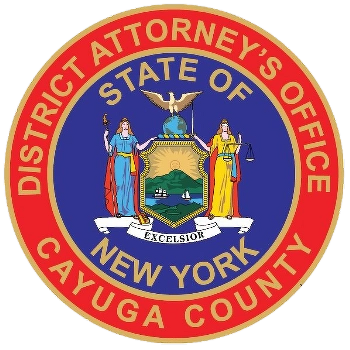Clean Slate Bill
- Cayuga County District Attorney's Office

- Jun 2, 2022
- 3 min read
Auburn, NY - A new version of Clean Slate was introduced in both the Assembly and the Senate over the weekend. It calls for the automatic sealing of an individual’s entire criminal history three years following the most recent misdemeanor conviction and seven years following the most recent felony conviction.
What many people do not know, is that there is a current law on the books under CPL Section 160.59 which allows for an individual to apply to have up to one felony and one misdemeanor conviction sealed. The District Attorneys Association of the State of New York (DAASNY) previously supported New York’s sealing statute under Criminal Procedure Law Section 160.59, which was enacted in 2017, and prosecutors remain committed to helping people navigate the process of sealing past convictions.
While I understand that many New Yorkers’ lives would be transformed by a carefully thought-out law that expands the categories of convictions that could be sealed, the Clean Slate bill, in its current drafted form, goes too far.
The Bill passed the Senate yesterday. Unfortunately, most of the significant concerns related to public safety have not been addressed in this current version. After carefully reviewing the proposed bill, I would like to share some observations and concerns and offer what I believe to be some common-sense suggestions.
Notably, this bill does not limit the number of convictions eligible for sealing and does not exclude the sealing of certain crimes deemed significantly dangerous to the public, including murder, manslaughter, arson, kidnapping, and illegal firearm possession. In order to balance fairness with public safety, practical public policy dictates that some of the most-serious crimes should not be eligible for sealing, or in the alternative, should only be sealed after judicial review.
As written, the bill would allow the sealing of an unlimited number of prior convictions. In effect, an offender could be convicted of a misdemeanor every three years and a felony every seven years and appear to the public as if he or she has no criminal record at all. As a matter of sound public policy and public safety, to avoid that result, there should be some limit on the number of convictions eligible for sealing, as well as the type of offenses that can be sealed.
For example, a defendant with 15 misdemeanor convictions, four felony convictions, including two violent felony convictions, could appear to the public as if he had never been convicted of a crime and does not have a criminal record. If you think this example is an exaggeration, I assure you it is not. In fact, we, in law enforcement, see individuals with similar criminal records every day.
Additionally, this bill excludes the sealing of prior convictions if a defendant has pending cases- yet the exclusion only applies for cases pending in New York. A defendant could have unlimited cases pending in other states or the federal system and still have cases sealed in New York. Sealing should not be permitted when a defendant has cases pending in another jurisdiction.
The bill also creates a very broad private cause of action for any defendant claiming to be aggrieved. This provision would allow those convicted of crimes to sue government officials, as well as third parties, claiming that their sealed criminal records were obtained in violation of the Clean Slate Law.
Since this legislation is on the active calendar before the Assembly, and could be voted on as soon as today, I believe that all New York citizens should be made aware of this new legislation and understand that the majority of the concerns raised by District Attorneys have not been addressed in the current version of the bill as drafted.
I would encourage members of the public to reach out to your individual Senators and Assembly members and voice any concerns you may have. There must be a way to strike an appropriate balance by allowing more people to benefit from sealing, while also prioritizing public safety. The result of this bill, as drafted, creates an obvious benefit for career criminals, violent offenders, and chronic domestic abusers at the expense of public safety and transparency.



